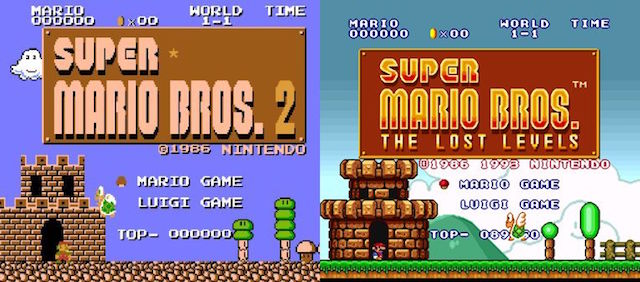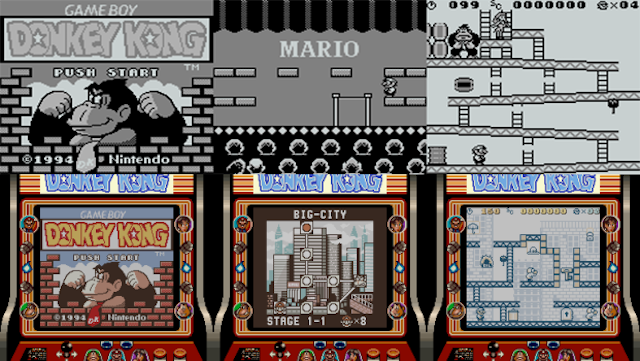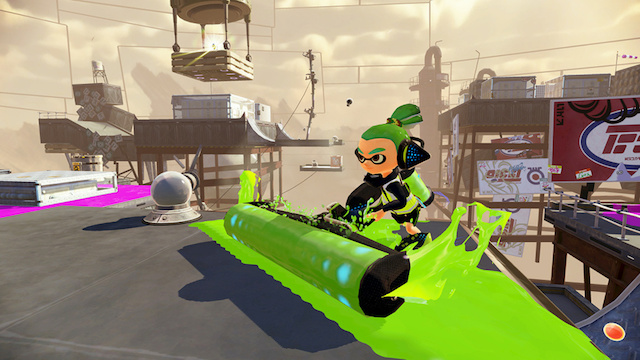With DLC taking a firm grip over gaming on all platforms– even Nintendo ones– it’s possible that its roots may have founding in a much earlier game console. While it may not be branded as DLC, the argument for what it truly is may classify it as such. The gaming world saw a lot of minor improvements and enhancements in great series back in the day, but moreover, we saw a lot of rehashing or things we would label as “ROM hacks” that added new content to already released titles.
One of the first examples of pure DLC, in my opinion, is the Sonic & Knuckles add-on adapter for Sega Genesis. It has all of its roots in what DLC is defined as in 2015, but it also did something that was primarily unseen when it was released. It allowed players to play as Knuckles in games where only Sonic and Tail reigned supreme (Sonic the Hedgehog 2 & 3), and also gave players the tremendous privilege of playing minigames in the first Sonic the Hedgehog and in Sonic Compilation. While Sonic & Knuckles was a game in its own right, it essentially had an added ability to turn itself into DLC for prior games. The discussion of whether or not this is one of the first instances of DLC may be up in the air, but if it can be bypassed to discuss whether or not it was worthwhile, the majority can agree that it was a decent, useful, and successful example of DLC.

Even games seen on Nintendo consoles could qualify under a larger umbrella of what DLC truly is. Super Mario Bros. 2 in Japan was released with the pretense that the first was too easy, so bringing out all the stops for the second was a must. However, Nintendo drastically underestimated how hard the game truly was and it proved to be nothing more than an insanely hard “remix” of the first title. Many today talk about the game as if it was never worthy of being called a new game simply because it didn’t introduce much and didn’t produce itself as a game worth owning if it was purposefully made with the intention of being difficult without putting much mind into the game’s level design. Were it to be made today, it would either be called a new Call of Duty game or it would be released as DLC very similar to New Super Luigi U. Both games feature harder levels, shorter times, and have minor differences from the game in which they were based upon.
Currently, games have a mission of making themselves easy to access when first released. Many people want to buy a game, play it, and not worry about things of tomorrow. However, it’s increasingly popular to make and release DLC not only to retain attention, but to attract new players to the series at hand. For example, Splatoon, in today’s definition, has no traditional DLC. However, the release of its Amiibo, which add additional clothing for players to enhance abilities, would qualify it as such. You pay $13 to get one figure, you play with that figure through various challenges, and your reward is new levels, new clothing, specialized weapons, and such. Beyond that, there is the periodic DLC that Nintendo is experimenting with, in which players can download new content every few weeks or so– free of charge. It’s not a bad attempt at going toward DLC, but it introduces a new mix to things every so often. Nintendo took the concept of DLC, remixed it a tad, and the masses, myself included, eat it up.

Another thing that may qualify itself as DLC is the release of games that were specifically target toward those who owned a piece of technology outside of the native hardware. Donkey Kong ’94 was released with the intention of promoting the Super Game Boy. The game itself will play on a regular Game Boy with the limited color scheme of green and beige, but when put in a Super Game Boy, it essentially adopts the mentality of a Game Boy Color game. It takes the form of a vibrant, colorful game and the influence it gave the Mario vs. Donkey Kong series is heavily evident. If playing the games now gives a sense of lackluster inspiration, this game does the exact opposite in its strive for colorful expression. Calling the game itself and the Super Game Boy “DLC” is a mighty stretch, as they both have other uses and are never promoted as only working in conjunction with each other, but the purest definitions of DLC would fit these two almost perfectly. You buy one game and you are given an experience that is less than optimal, so if you buy this other thing and play it there, your experience is enhanced. The same metaphor could be used for Pokémon Gold and Silver when played on a Game Boy as opposed to a Game Boy Color, but the discussion would be exactly the same.
DLC has become something that has been ingrained into what would be considered gaming culture. From the abundance of it, to its usage, it has become something every gamer expects when playing games. Even when Nintendo was seemingly against the idea altogether, Smash Bros., Mario Kart, and any game with Amiibo support have surfaced and turned the company’s attitude around. The hat tip given to Nintendo is that the usage of these things simply makes playing the game a better experience as opposed to locking users out of what would otherwise be considered part of a game’s enjoyment. DLC may be a new concept, but its roots and foundation may be found in how we received games released decades ago. Then, everyone saw these tiny enhancements as fun, cool, and almost innovative. Now, it’s as if we’ve grown tired of them and only wish for the full experience, knowing what was presented to us and hoping we’d get the entire thing. Maybe it’s a shame that it has to be this way, but the kid living in nostalgia sees a lot of it as a callback to some of the most subtle and best moments in gaming.




 ShareThis
ShareThis








Good article, I can see how these things laid a foundation for the current fiasco of dlc. Difference was back then, you actually had something to show for your money, as in product that you could resell, keep for your own collection, or whatever. That’s the major difference, but time marches on. I enjoyed the Mario Kart 8 dlc, that for me was dlc done right. Day one dlc, no. That is a rip-off. I suppose even some of those early Mega Man NES games could be considered a form of dlc as well, as it was just more of the same but improved. They used to call them sequels.